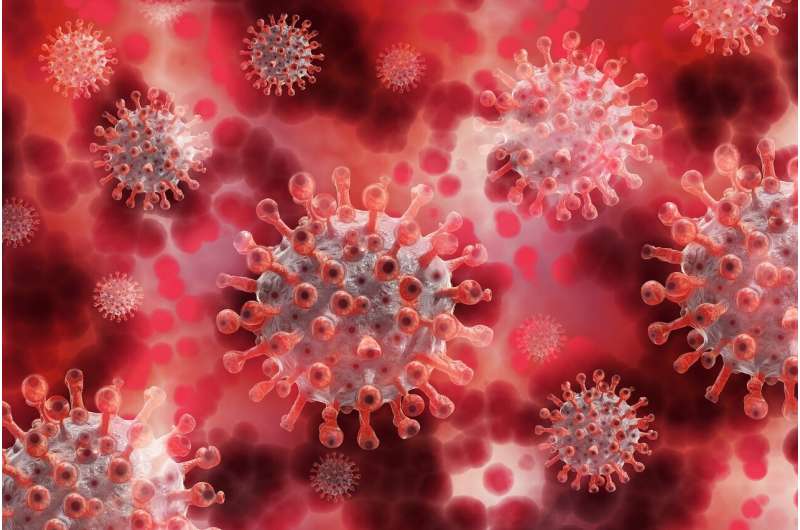New insights into uncontrolled inflammation in COVID-19 patients

In a new study, published recently in the journal Circulation Research, scientists discover how the production of protective molecules known as specialized pro-resolving mediators (SPM) is altered in patients with COVID-19.
The results suggest that treatments which increase SPM production, such as dexamethasone or SPM based drugs, could play a key role in limiting inflammation in these patients.
Currently there is little understanding around the mechanisms that lead to uncontrolled inflammation in patients with COVID-19.
The study found a link between decreased SPM blood levels and disrupted white blood cell responses in patients with a higher disease burden. The findings also revealed that dexamethasone, the first drug approved for treatment of patients with COVID-19, increased the levels of these protective molecules in these patients. Furthermore, treatment of white blood cells with SPM improved their function and reduced the expression of molecules linked to the spread of inflammation. Understanding these mechanisms will help provide new leads into the development of treatments to limit disease severity in patients with COVID-19.
This study offers a new insight into the disrupted biological processes that contribute to increased disease severity in COVID-19 patients. Results suggest that treatments which increase SPM production, such as dexamethasone or SPM based drugs, could play a key role in limiting inflammation in this patient group.
Jesmond Dalli, Professor in Molecular Pharmacology and Lipid Mediator Unit Director at Queen Mary University of London said that "the observation that dexamethasone increased the production of SPM was a surprising finding. This finding suggests that SPM may serve as biomarkers to determine the efficacy of this drug in limiting inflammation in patients with COVID-19. Another surprising finding was that blood levels of these molecules remained altered several weeks after resolution of clinical symptoms."
"Our results are the first to relate the impact that COVID-19 infections on immune responses and to explore the utility of using SPM to rectify white blood cell behavior. Given the extensive body of literature demonstrating the protective role of these molecules in limiting inflammation in both viral and bacterial infections these results suggest that SPM and SPM-based therapeutics may be useful in the treatment of infections to limit inflammation without compromising the ability of the immune system to deal with the invading pathogen."
Mauro Perretti (Dean for Research, School of Medicine and Dentistry) said that "this study is a perfect example of a productive partnership between Barts and the London School of Medicine at Queen Mary and Barts NHS Trust, a partnership established in difficult circumstances yet successful thanks to the will and commitment of our scientists and clinicians. The paper presents world class data on how resolution pathways impact on COVID infection, opening opportunities for new therapies and new markers to predict patient outcome."
More information: Duco Steven Koenis et al, Disrupted Resolution Mechanisms Favor Altered Phagocyte Responses in Covid-19, Circulation Research (2021). DOI: 10.1161/CIRCRESAHA.121.319142

















